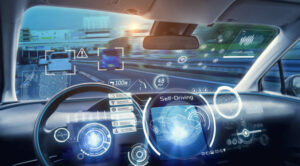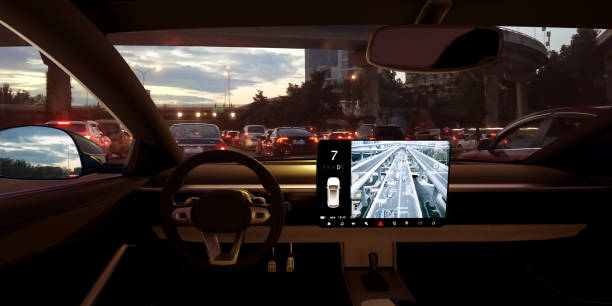Self-Driving Cars Essay Introduction
Self-driving or autonomous cars are becoming increasingly popular as they solve road accidents, traffic congestion, and driver fatigue. They operate without a human driver and use a combination of sensors, cameras, and artificial intelligence to navigate the roads. Nevertheless, a continuing discussion exists regarding whether self-driving cars should replace human drivers. In this should self-driving cars replace human drivers essay, we will explore the advantages and disadvantages of self-driving cars and whether they should replace human drivers.
Should Self-Driving Cars Replace Human Drivers Essay
Advantages of Self-Driving Cars
Increased Safety
One of the primary advantages of self-driving cars is that they offer increased road safety. The World Health Organization (WHO) states that road traffic accidents claim the lives of around 1.35 million people yearly. However, self-driving cars could greatly diminish this figure as they are less prone to accidents caused by human error. They can detect potential hazards faster than human drivers and react quickly to avoid accidents.
Reduced Traffic Congestion
Another advantage of self-driving cars is that they have the potential to reduce traffic congestion. With sensors and artificial intelligence, self-driving cars can communicate with each other to avoid collisions and optimize routes, reducing the time spent in traffic. This could lead to a significant reduction in travel time and an increase in productivity.
Improved Accessibility
Self-driving cars have the potential to improve accessibility for individuals who are unable to drive due to disabilities or age. These individuals would have greater independence and mobility with self-driving cars, improving their quality of life.
Should self-driving cars replace human drivers Argument Essay

Disadvantages of Self-Driving Cars
High Initial Cost
One of the main disadvantages of self-driving cars is their high initial cost. The technology required to develop self-driving cars is expensive, and this cost is often passed on to the consumer. As a result, self-driving cars need to be within reach for many individuals, especially those in developing countries.
Cybersecurity Risks
Self-driving cars rely heavily on software and internet connectivity, making them vulnerable to cybersecurity risks. Hackers could gain access to a self-driving car’s systems, leading to dangerous situations on the road. As technology advances, cybersecurity risks will continue to be a concern, and developers must take steps to address these risks.
Job Losses
The introduction of self-driving cars could lead to job losses for human drivers. According to a study by the Center for Global Policy Solutions, the widespread adoption of self-driving cars could result in losing up to 4 million jobs. This could significantly impact the economy, especially for individuals who rely on driving jobs to make a living.
Should Self-Driving Cars Replace Humans?
The question of whether self-driving cars should replace humans is a complex one. While there are advantages to self-driving cars, there are also significant disadvantages that must be considered.
Social Acceptance
Self-driving cars are a relatively new technology. Many people may not feel comfortable or safe riding in a car without a human driver. Social Acceptance is important when deciding whether self-driving cars should replace human drivers.
Environmental Impact
Self-driving cars have the potential to reduce carbon emissions and improve air quality significantly. They can optimize routes and reduce traffic congestion, reducing fuel consumption. When deciding whether self-driving cars should replace human drivers, it is important to consider their potential environmental impact.
Ethical Considerations
Self-driving cars use algorithms to make decisions, which raises ethical considerations. For example, when an accident is inevitable, the car’s algorithm must decide whom to protect, the passengers or pedestrians. When deciding whether self-driving cars should replace human drivers, it is important to consider the ethical implications of these decisions.
Privacy Concerns
Self-driving cars collect much data, including information about the car’s location, speed, and occupants. This data raises privacy concerns, and it is important to consider how it will be collected, stored, and used when deciding whether self-driving cars should replace human drivers.
Conclusion
“Should Self-Driving Cars Replace Human Drivers Essay” concludes that while there are advantages to self-driving cars, there are also significant disadvantages that must be considered. Safety, accessibility, job losses, regulation, etc are all factors that must be considered when deciding whether self-driving cars should replace human drivers. Ultimately, it is important to carefully weigh self-driving cars’ benefits and risks and develop strategies to address potential drawbacks. With proper regulation and oversight, self-driving cars have the potential to significantly improve road safety, reduce traffic congestion, and improve accessibility for individuals who are unable to drive.
Checkout These posts:
Essay on service to mankind is service to God
Essay on one step towards green and clean energy
Cut your coat according to your cloth Essay
FAQs
Why should self-driving cars replace human drivers?
Self-driving cars can increase road safety by reducing human errors. They follow the rules without distractions and fatigue, making driving safer.
What are the advantages of a driverless car vs a human driver?
Driverless cars offer better safety, less traffic congestion, and improved accessibility for people who cannot drive, like the elderly or disabled.
Are self-driving cars good for the future?
Yes, self-driving cars hold promise for the future. They can enhance road safety, reduce accidents, and offer more efficient transportation options.
How will self-driving cars change the world?
Self-driving cars can revolutionize transportation by reducing accidents, lowering emissions, and making travel more convenient and accessible for everyone.
